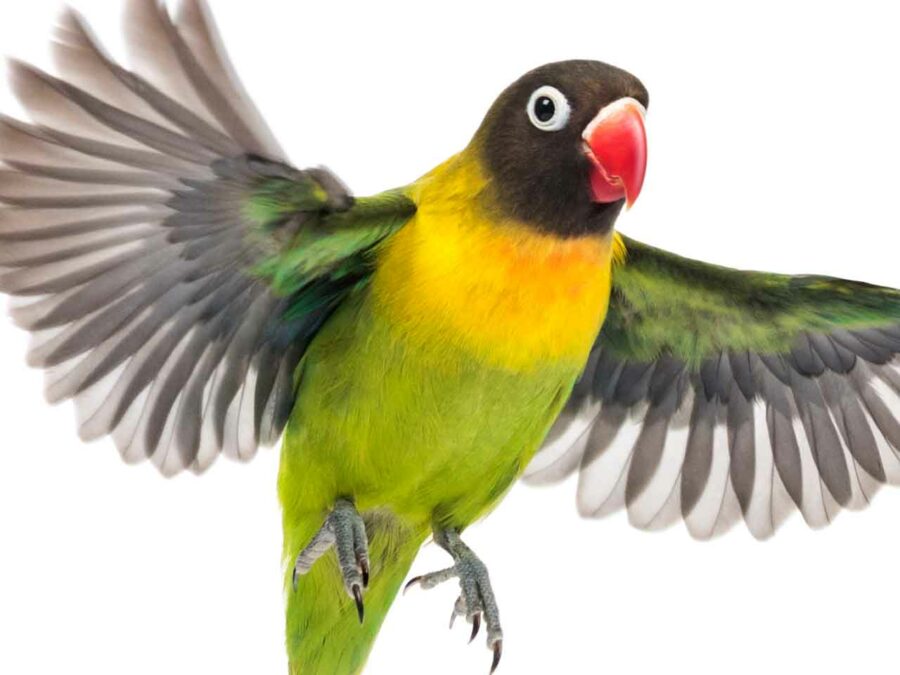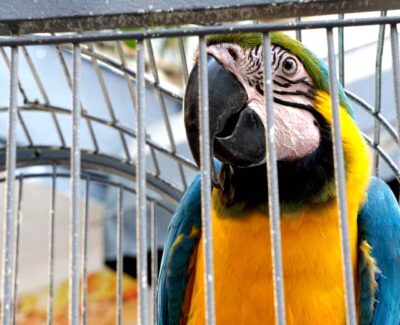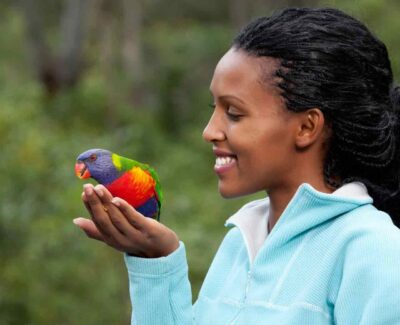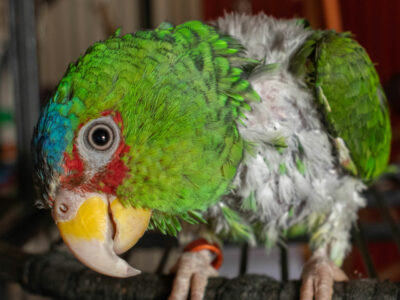
Key Things to Know About Your Pet Bird’s Health
As complex and delicate creatures, taking proper care of your pet bird’s health is crucial for providing them with a long, happy, and comfortable life. While specific guidelines may vary from bird to bird, we’ve compiled the following overview of key factors to keep in mind regarding your bird’s health.
Diet and Nutrition
A balanced diet is crucial for keeping your bird happy and healthy. Different species have varying dietary requirements, so it’s important to work with your avian veterinarian to develop a diet plan tailored to your bird’s species and health needs. In addition to your bird’s primary food (pellets and/or seeds), providing them with an array of fresh fruits, vegetables, and occasional nuts and treats will create a well-rounded diet. Be aware of foods that are toxic to birds, such as avocados, chocolate, caffeine, and alcohol, and ensure that your bird never has access to them.
Clean Water Supply
Your bird should always have access to clean, fresh water. Birds are sensitive to water quality, and contaminated water can lead to health problems. Therefore, change the water daily and clean the water dish regularly to prevent the growth of harmful bacteria. You may also want to consider using a water bottle designed for birds to reduce the risk of contamination from droppings and food particles.
Housing and Environment
As your bird’s primary living space, it’s important to maintain a clean, safe, and spacious cage. Ensure that the cage is large enough for your bird to spread its wings fully and move around comfortably, and place the cage in a location free from drafts, direct sunlight, and away from kitchen fumes or smoke. Additionally, provide a variety of perches of different sizes and textures to promote foot health and prevent pressure sores.
Mental and Physical Stimulation
Birds are intelligent and social creatures that require mental and physical stimulation to stay healthy, so be sure to provide a rotating selection of toys, puzzles, and activities to keep your bird engaged and prevent boredom. Regular interaction and socialization with humans and potentially other birds (depending on their species and temperament) are also important for birds’ mental well-being.
Regular Veterinary Care
Just like humans and other pets, birds require regular medical check-ups to ensure their ongoing health. Annual exams conducted by a qualified avian veterinarian can help detect potential health issues early, thereby enabling you to treat them before they become more serious. Your vet can also provide guidance on diet, behavior, and any concerns you may have.
Common Health Issues
Being aware of common health problems that affect birds can help you spot issues early. Some common conditions include:
Feather plucking
This behavior is often caused by stress, boredom, or nutritional deficiencies.
Respiratory issues
Symptoms may include wheezing, coughing, and nasal discharge.
Digestive problems
Watch for changes in droppings, vomiting, or a lack of appetite.
Parasitic infections
Mites, lice, and internal parasites can have a negative impact on your bird’s health.
Monitor your feathered companion daily for any signs of illness, and seek prompt veterinary care if you notice anything unusual.
Grooming Needs
To ensure optimal health, birds require regular nail trimming, beak maintenance, and sometimes wing clipping. These tasks may be best left to a professional, such as an avian vet. Additionally, providing opportunities for your bird to bathe or misting them with water can help maintain healthy feathers and skin.
Behavioral Health
Paying close attention to your bird’s behavior is the key to recognizing when something is amiss. Changes in behavior, such as increased aggression, lethargy, or changes in vocalization, may be indicators of stress or illness. Consider keeping a journal or other record of your bird’s behaviors to help you identify any shifts that could indicate underlying health issues, and strive to provide a stable, enriched environment to support your bird’s behavioral health.
While caring for a pet bird is a long-term commitment that comes with a great deal of responsibility, your bird will reward you with many years of joy and companionship. Check out our locator tool to find an avian vet near you, or follow along at our Facebook page to join an engaged and supportive community of pet bird enthusiasts!





